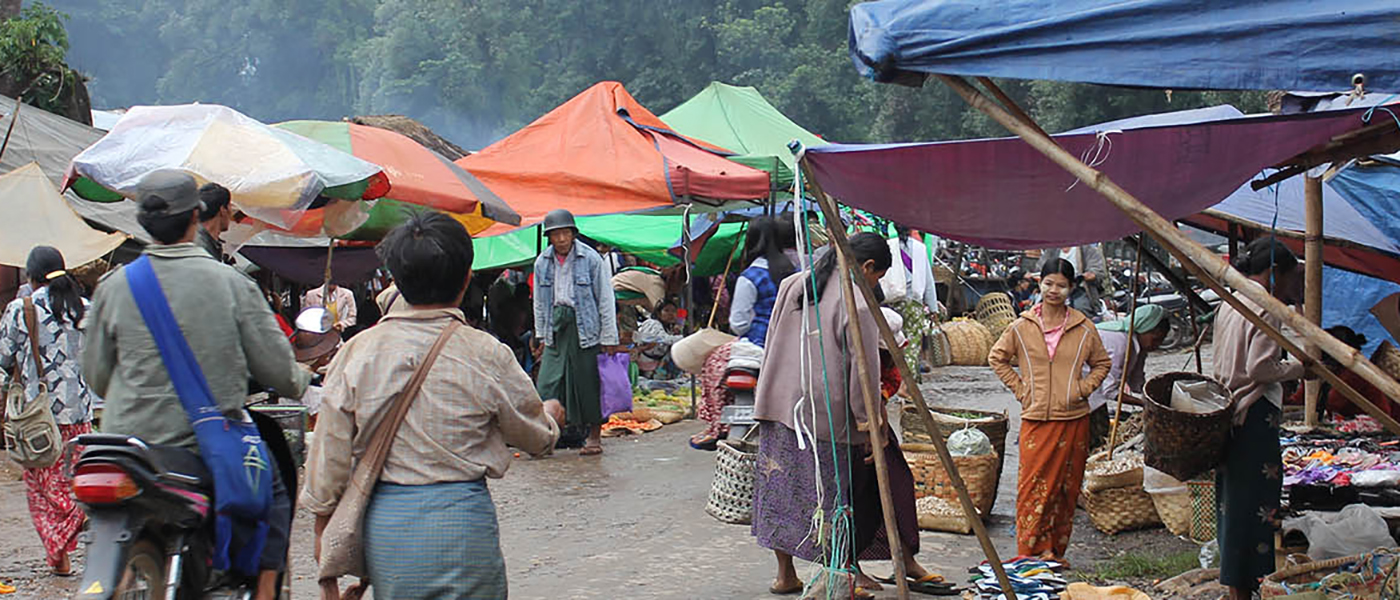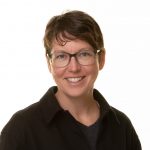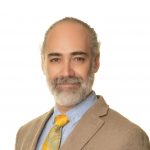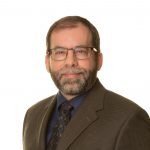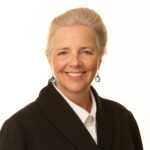Society
The Society research area explores the relationships between human activity and the environment. This includes the study how social, cultural, health, political and economic processes vary across cities, suburban areas, and rural spaces. Key topics include housing, caregiving, health and wellness, urban development, transportation, gentrification, food insecurity, migration, and employment. Our research focuses on how peoples’ experiences in places – the home, the workplace, city streets and much more – are shaped by their gender, age, class, dis/ability, race, ethnicity, and Indigeneity. We use research methods such as GIS, spatial statistics, qualitative methods, and community-based collaboration in our work and we are influenced by diverse theoretical perspectives such as feminism, postcolonialism, and political economy.
Information Box Group
Melanie Bedore
Assistant Professor
(Acting) Associate Director, Undergraduate Studies (SEES)
Dr. Melanie Bedore earned a BPAPM from Carleton University (Ottawa) and an MPA and Ph.D. from Queen’s University. She is a human geographer and a teaching stream faculty member focusing on undergraduate teaching and learning. Melanie experiments with a variety of pedagogical strategies to promote deep student learning and engagement, including learning portfolios, engaged lecturing, promoting student metacognition, discussion-based learning and bringing active learning strategies into the conventional university classroom. She places particular emphasis on student writing and critical thinking in all of her courses.
Her previous research and areas of specialization include urban food access and sustainable urban food systems, urban poverty and inequality, community-based charitable food programs, and city-regional prosperity.
Melanie is open to supervising undergraduate independent studies and theses but she is not accepting graduate students at this time.

Melanie Bedore
Assistant Professor
(Acting) Associate Director, Undergraduate Studies (SEES)
Luc Bernier
Assistant Professor
Not currently accepting graduate students.
Abel Chikanda
Associate Professor
Dr. Abel Chikanda is an Associate Professor in the School of Earth, Environment & Society (EES) at McMaster University in Hamilton, Ontario. He received his PhD in Geography from Western University in 2006 and was an Assistant / Associate Professor at the University of Kansas between 2015 and 2022. Prior to that, he was a SSHRC postdoctoral fellow at Queen’s University (2010-2012) and Research Coordinator at the Balsillie School of International Affairs (2013-2015). He also worked as a lecturer at the University of Zimbabwe (2004-2006). His recent research has focused on African immigrant integration and the role of diasporas in developing their countries of origin. His current research seeks to explore the ways in which African cities can build sustainable and resilient food systems. He is an active member of the Southern African Migration Programme (SAMP), the African Urban Food Network (AFSUN), the Hungry Cities Partnership (HCP) and the Migration and Food Security (MiFOOD) research networks.
Gita Ljubicic
Professor
Canada Research Chair (Tier 2) in Community-Engaged Research for Northern Sustainability (on Research leave)
Dr. Gita Ljubicic is a Geographer with training in the natural and social sciences, who works primarily at the intersection of cultural and environmental geography. Her work is driven by a deep commitment to respecting and learning from Indigenous knowledge alongside science in order to address complex socio-ecological issues. She and her research team are dedicated to a cooperative, community-driven approach to research that involves developing and fostering working relationships with Indigenous experts and organizations throughout all stages of the research process. Gita has primarily worked with Inuit community members and organizations in Nunavut, but through collaborations she have been involved in research with Inuit, M?©tis, and First Nations communities across the Yukon, Northwest Territories, Nunavut, Nunavik (northern Qu?©bec), and Nunatsiavut (northern Labrador).
Broadly, Gita’s research efforts focus in three main areas:
- learning from Indigenous knowledge about arctic environments;
- working with and refining cross-cultural research ethics and methods; and,
- contributing to community efforts to mobilize Indigenous knowledge to inform decision-making.
Gita has worked with Inuit communities and academic partners to learn from Inuit knowledge about sea ice, caribou, plants, and water in relation to implications of climate change, importance in northern livelihoods and wellbeing, and contributions to decision-making from local to national scales. In all projects the research process itself is an important focus, where she and her team explore: i) collaborative approaches to research; ii) ethics of informed consent in a cross-cultural context; iii) participatory mapping and knowledge representations; and, v) qualitative data management practices. Taken together, the outcomes of learning from Indigenous knowledge, and working together effectively, contribute to efforts to bring together diverse perspectives and evidence for more representative decision-making. Gita and her research team have been engaged in various environmental monitoring, co-management, eduction, and cultural heritage initiatives as an important means of mobilizing research results.
To learn more about Dr. Ljubicic visit https://straightupnorth.ca/gita-ljubicic/, and for the StraightUpNorth team visit https://straightupnorth.ca/team/
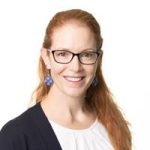
Gita Ljubicic
Professor
Canada Research Chair (Tier 2) in Community-Engaged Research for Northern Sustainability (on Research leave)
Michael Mercier
Associate Professor
Associate Director, Undergraduate Studies (SEES) (on leave)
Dr. Mercier is one of four Teaching Professors in the School of Geography & Earth Sciences. He has been recognized for his teaching excellence and his committment to the student experience.
Dr. Mercier’s teaching interests are primarily focused in the broad, interdisciplinary field of human geography, especially at the introductory level. Dr. Mercier is co-author of Human Geography (Oxford University Press), the market-leader in introductory human geography textbooks.
In addition, Dr. Mercier teaches courses across the many sub-areas of the field of human geography, including: urban (incl. urban planning), economic (incl. globalization), social, population and health, and regional geography (incl. world regional geography, geography of Brazil, etc.).
Dr. Mercier also regularly teaches some of the core methodological courses such as research and field methods, and regularly can be found leading field courses in Toronto every August and San Francisco in February. Dr. Mercier is also the coordinator of the School of Geography & Earth Science’s independent study program.
Not currently accepting graduate students.

Michael Mercier
Associate Professor
Associate Director, Undergraduate Studies (SEES) (on leave)
Suzanne Mills
Associate Professor, Labour Studies
Dr. Suzanne Mills adopts a spatial lens to the study of identity, work and labour unions. Over the past 15 years, Mills has developed an expertise on resource and construction employment in northern Canada and has worked with Indigenous communities to critically examine Indigenous employment plans. Suzanne’s research has asked diverse questions such as: How are unions engaging with Indigenous governments and Impact Benefit Agreements? and, How do gender and Indigenous identity influence workers’ experiences of work related mobility? Currently, Mills is leading a research project examining the experiences of LGBTQ+ workers in northern and southwestern Ontario in partnership with Unifor, the United Steelworkers and the Windsor Workers Centre.
Bruce Newbold
Professor
Associate Dean, Graduate Studies (Science)
Dr. Bruce Newbold is a Professor in the School of Earth, Environment & Society (SEES) at McMaster University in Hamilton, Ontario. He received his PhD in Geography from McMaster University in 1994, and worked at the University of Illinois Urbana-Champaign between 1994 and 2000 before returning to McMaster in 2000. Since returning to McMaster, he has held Guest Scholar positions at the Center for Comparative Immigration Studies, University of California San Diego (2004), and the Medical Research Council’s Social and Public Health Sciences Unit at the University of Glasgow (2008), a position which included a Fellowship through the Department of Urban Studies, University of Glasgow. His research interests focus on population issues as they relate to immigration, migration, health, and aging. Recent research has focused on the role of migration in the development and transfer of human capital and income across space, commuting and sustainability questions, the income benefits associated with migration, immigrant health, and immigrant settlement processes.
Current Research:
As of the 2021 census, 19% of Canada’s population was aged 65 and over, with this share projected to increase to approximately 23% by 2043 as Canada’s population continues to age rapidly and fertility rates remain low.. While many of older adults will expect or desire to age in place, many will move to ‘downsize’ their living space, move to be closer to family for support, or move into care facilities. As more Canadians age into retirement, there will be more migrants and understanding where they choose to live/move is vital. Despite significant attention to migration flows within the labour force, there has been much less attention given to migration within Canada’s older adult population. From a theoretical perspective, there has also been little advancement in our understanding of the motivations associated with moves by older adults, hampering our ability to plan for Canada’s aging population, including with respect to housing options, transportation, and service provision.
This SSHRC funded research project will seek to understand the patterns, motivations, and timing for moves among older adults. In addition to understanding the spatial patterns associated with moves, the proposed research will systematically identify the most important predictors of moves, while also providing a tool to predict whether an individual will/will not move, enabling planning for Canada’s aging population.
Antonio Páez
Professor
Associate Member: Civil Engineering
Antonio Páez is full professor in the School of Earth, Environment & Society at McMaster University. Recent work includes studies on accessibility, spatial filtering, aging and mobility, spatial analysis of qualitative variables, transportation and social exclusion, the influence of the built and social environments on travel behavior, social networks and decision making, telework adoption, and blood donor behavior and trends. Dr. Paez has published widely, and is author or co-author of over 110 papers, many appearing in leading international journals, including Environment and Planning A and B, Urban Studies, Geographical Analysis, Journal of Geographical Systems, Transportation, Journal of Transport Geography, Transportation, Transportation Research Part A, Papers in Regional Science, International Journal of Health Geographics, Growth and Change, and Social Networks. He also co-edited the books Progress in Spatial Analysis: Methods and Applications (published in 2009 as part of Springer’s series Advances in Spatial Science), and Population Loss: The Role of Transportation and Other Issues (published in 2018 as part of Elsevier’s Advances in Transport Policy and Planning Series). He currently serves as Editor-in-Chief of the Journal of Geographical Systems, and sits on the editorial boards of Transportation, Journal of Transport Geography, Geographical Analysis, and International Journal of Geographical Information Science, among others.
Léa Ravensbergen
Assistant Professor
Léa Ravensbergen focuses on critical transport research and explores how cities can foster more sustainable transport systems in an equitable manner. She uses a combination of qualitative (interviews, mobile ethnography, participatory mapping, observations) and quantitative (survey analysis, GIS) methods to uncover barriers to walking, cycling, and public transport. Much of her recent work has focused on gender-equity in active travel and age-friendly transport planning.
Darren Scott
Professor
Dr. Darren Scott is a Professor in the School of Earth, Environment & Society at McMaster University where he teaches courses in Geographic Information Science (GIScience). Dr. Scott was an Assistant Professor in the Department of Geography and Geosciences at the University of Louisville between 1999 and 2002, and held a Visiting Research Professor position at the Swiss Federal Institute of Technology (Zurich) in 2008. Dr. Scott’s undergraduate degree is in geography (BA. Honors and Co-op, 1991), with graduate degrees also in geography from the University of Western Ontario (MA, 1994) and McMaster University (PhD, 2000). Dr. Scott’s research program is situated at the nexus of three fields of inquiry: travel behavior, GIScience, and sustainable transportation. He has published over 100 refereed journal articles in leading transportation, regional science, and urban studies journals. His research program has been supported by grants from the National Science Foundation of the United States (NSF), the Social Sciences and Humanities Research Council of Canada (SSHRC), the Natural Sciences and Engineering Research Council of Canada (NSERC), and Geomatics for Informed Decisions (GEOIDE), among other funding agencies. In 2008, Dr. Scott established a research lab – TransLAB – in the School of Earth, Environment & Society where advanced transportation research is conducted by students working under his supervision.
Allison Williams
Professor
CIHR Research Chair in Gender, Work and Health
Dr. Allison Williams is a Professor in the School of Earth, Environment & Society. She is trained as a health geographer in quantitative, qualitative, and mixed-methods research. She holds a Bachelors of Arts degree from Bishop’s University, a Masters of Arts degree from the University of Toronto, and a Doctor of Philosophy from York University. In 2008. She engages in social justice research to inform policy and program change. Most recently, she is leading a partnership grant to create carer-inclusive workplaces.
Robert Wilton
Professor
Dr. Robert Wilton earned a Hons. B.A. at the University of Hull (UK) and a M.A. and Ph.D. from the University of Southern California in Los Angeles. His research is broadly concerned with the social geographies of exclusion. He is interested in (1) the ways that some groups within society are excluded from valued environments, (2) the ways in which this exclusion reproduces the marginal or problem status of such groups, and (3) the capacity of such groups to contest their exclusion. Much of his research has focused specifically on the experiences of people with disabilities. His doctoral work, for example, examined the origins of community opposition to housing for disabled persons. More recently, his work has focused on three topics. He is completing SSHRC-funded research on the exclusion of disabled persons from spaces of paid employment, and the strategies used by individuals to overcome this exclusion. He is working with a coalition of people living with mental illness to document the negative impacts of poverty and poor housing on quality of life and social participation.
Niko Yiannakoulias
Associate Professor
Dr. Niko Yiannakoulias came to McMaster University in 2007 after completing his PhD at the University of Alberta in 2006. His primary fields of interest include environmental health and geographic information science (GISci). He has done applied work in the areas of environmental health, transportation safety, mental health and crime. He has developed methods for analyzing spatial patterns of disease, solving political districting problems, geographic crime profiling and public health surveillance. Dr. Yiannakoulias’ research has been funded primarily by the Social Sciences and Humanities Research Council (SSRHC) and the Public Health Agency of Canada (PHAC).
Research Interests:
1. Environmental health
- Understanding and characterizing interactions between the environment and human health
- Understanding spatial-temporal structures in infectious disease
- Geographic health surveillance
- Paediatric injury and the social and physical environment
2. Environmental risk analysis and risk communication
- Associations between environmental decision making and risk perception
- Risk communication systems for rare events
- Risk mitigation strategies
- Research game approaches to environmental policy analysis
3. Agent-based models of human and environment interaction
- Developing agent-based models to observe the emergence of spatial patterns in cooperative and competitive social environments
- Studying how changes in social behaviour (such as immunization) interact with the evolution of disease virulence in pathogenic microorganisms
- Agent-based models for infectious disease control and planning
- Environmental games and game theory
Melanie Bedore
Assistant Professor
(Acting) Associate Director, Undergraduate Studies (SEES)
Dr. Melanie Bedore earned a BPAPM from Carleton University (Ottawa) and an MPA and Ph.D. from Queen’s University. She is a human geographer and a teaching stream faculty member focusing on undergraduate teaching and learning. Melanie experiments with a variety of pedagogical strategies to promote deep student learning and engagement, including learning portfolios, engaged lecturing, promoting student metacognition, discussion-based learning and bringing active learning strategies into the conventional university classroom. She places particular emphasis on student writing and critical thinking in all of her courses.
Her previous research and areas of specialization include urban food access and sustainable urban food systems, urban poverty and inequality, community-based charitable food programs, and city-regional prosperity.
Melanie is open to supervising undergraduate independent studies and theses but she is not accepting graduate students at this time.
Melanie Bedore
Assistant Professor
(Acting) Associate Director, Undergraduate Studies (SEES)
Dr. Melanie Bedore earned a BPAPM from Carleton University (Ottawa) and an MPA and Ph.D. from Queen’s University. She is a human geographer and a teaching stream faculty member focusing on undergraduate teaching and learning. Melanie experiments with a variety of pedagogical strategies to promote deep student learning and engagement, including learning portfolios, engaged lecturing, promoting student metacognition, discussion-based learning and bringing active learning strategies into the conventional university classroom. She places particular emphasis on student writing and critical thinking in all of her courses.
Her previous research and areas of specialization include urban food access and sustainable urban food systems, urban poverty and inequality, community-based charitable food programs, and city-regional prosperity.
Melanie is open to supervising undergraduate independent studies and theses but she is not accepting graduate students at this time.
Luc Bernier
Assistant Professor
Not currently accepting graduate students.
Luc Bernier
Assistant Professor
Not currently accepting graduate students.
Abel Chikanda
Associate Professor
Dr. Abel Chikanda is an Associate Professor in the School of Earth, Environment & Society (EES) at McMaster University in Hamilton, Ontario. He received his PhD in Geography from Western University in 2006 and was an Assistant / Associate Professor at the University of Kansas between 2015 and 2022. Prior to that, he was a SSHRC postdoctoral fellow at Queen’s University (2010-2012) and Research Coordinator at the Balsillie School of International Affairs (2013-2015). He also worked as a lecturer at the University of Zimbabwe (2004-2006). His recent research has focused on African immigrant integration and the role of diasporas in developing their countries of origin. His current research seeks to explore the ways in which African cities can build sustainable and resilient food systems. He is an active member of the Southern African Migration Programme (SAMP), the African Urban Food Network (AFSUN), the Hungry Cities Partnership (HCP) and the Migration and Food Security (MiFOOD) research networks.
Abel Chikanda
Associate Professor
Dr. Abel Chikanda is an Associate Professor in the School of Earth, Environment & Society (EES) at McMaster University in Hamilton, Ontario. He received his PhD in Geography from Western University in 2006 and was an Assistant / Associate Professor at the University of Kansas between 2015 and 2022. Prior to that, he was a SSHRC postdoctoral fellow at Queen’s University (2010-2012) and Research Coordinator at the Balsillie School of International Affairs (2013-2015). He also worked as a lecturer at the University of Zimbabwe (2004-2006). His recent research has focused on African immigrant integration and the role of diasporas in developing their countries of origin. His current research seeks to explore the ways in which African cities can build sustainable and resilient food systems. He is an active member of the Southern African Migration Programme (SAMP), the African Urban Food Network (AFSUN), the Hungry Cities Partnership (HCP) and the Migration and Food Security (MiFOOD) research networks.
Gita Ljubicic
Professor
Canada Research Chair (Tier 2) in Community-Engaged Research for Northern Sustainability (on Research leave)
Dr. Gita Ljubicic is a Geographer with training in the natural and social sciences, who works primarily at the intersection of cultural and environmental geography. Her work is driven by a deep commitment to respecting and learning from Indigenous knowledge alongside science in order to address complex socio-ecological issues. She and her research team are dedicated to a cooperative, community-driven approach to research that involves developing and fostering working relationships with Indigenous experts and organizations throughout all stages of the research process. Gita has primarily worked with Inuit community members and organizations in Nunavut, but through collaborations she have been involved in research with Inuit, M?©tis, and First Nations communities across the Yukon, Northwest Territories, Nunavut, Nunavik (northern Qu?©bec), and Nunatsiavut (northern Labrador).
Broadly, Gita’s research efforts focus in three main areas:
- learning from Indigenous knowledge about arctic environments;
- working with and refining cross-cultural research ethics and methods; and,
- contributing to community efforts to mobilize Indigenous knowledge to inform decision-making.
Gita has worked with Inuit communities and academic partners to learn from Inuit knowledge about sea ice, caribou, plants, and water in relation to implications of climate change, importance in northern livelihoods and wellbeing, and contributions to decision-making from local to national scales. In all projects the research process itself is an important focus, where she and her team explore: i) collaborative approaches to research; ii) ethics of informed consent in a cross-cultural context; iii) participatory mapping and knowledge representations; and, v) qualitative data management practices. Taken together, the outcomes of learning from Indigenous knowledge, and working together effectively, contribute to efforts to bring together diverse perspectives and evidence for more representative decision-making. Gita and her research team have been engaged in various environmental monitoring, co-management, eduction, and cultural heritage initiatives as an important means of mobilizing research results.
To learn more about Dr. Ljubicic visit https://straightupnorth.ca/gita-ljubicic/, and for the StraightUpNorth team visit https://straightupnorth.ca/team/
Gita Ljubicic
Professor
Canada Research Chair (Tier 2) in Community-Engaged Research for Northern Sustainability (on Research leave)
Dr. Gita Ljubicic is a Geographer with training in the natural and social sciences, who works primarily at the intersection of cultural and environmental geography. Her work is driven by a deep commitment to respecting and learning from Indigenous knowledge alongside science in order to address complex socio-ecological issues. She and her research team are dedicated to a cooperative, community-driven approach to research that involves developing and fostering working relationships with Indigenous experts and organizations throughout all stages of the research process. Gita has primarily worked with Inuit community members and organizations in Nunavut, but through collaborations she have been involved in research with Inuit, M?©tis, and First Nations communities across the Yukon, Northwest Territories, Nunavut, Nunavik (northern Qu?©bec), and Nunatsiavut (northern Labrador).
Broadly, Gita’s research efforts focus in three main areas:
- learning from Indigenous knowledge about arctic environments;
- working with and refining cross-cultural research ethics and methods; and,
- contributing to community efforts to mobilize Indigenous knowledge to inform decision-making.
Gita has worked with Inuit communities and academic partners to learn from Inuit knowledge about sea ice, caribou, plants, and water in relation to implications of climate change, importance in northern livelihoods and wellbeing, and contributions to decision-making from local to national scales. In all projects the research process itself is an important focus, where she and her team explore: i) collaborative approaches to research; ii) ethics of informed consent in a cross-cultural context; iii) participatory mapping and knowledge representations; and, v) qualitative data management practices. Taken together, the outcomes of learning from Indigenous knowledge, and working together effectively, contribute to efforts to bring together diverse perspectives and evidence for more representative decision-making. Gita and her research team have been engaged in various environmental monitoring, co-management, eduction, and cultural heritage initiatives as an important means of mobilizing research results.
To learn more about Dr. Ljubicic visit https://straightupnorth.ca/gita-ljubicic/, and for the StraightUpNorth team visit https://straightupnorth.ca/team/
Michael Mercier
Associate Professor
Associate Director, Undergraduate Studies (SEES) (on leave)
Dr. Mercier is one of four Teaching Professors in the School of Geography & Earth Sciences. He has been recognized for his teaching excellence and his committment to the student experience.
Dr. Mercier’s teaching interests are primarily focused in the broad, interdisciplinary field of human geography, especially at the introductory level. Dr. Mercier is co-author of Human Geography (Oxford University Press), the market-leader in introductory human geography textbooks.
In addition, Dr. Mercier teaches courses across the many sub-areas of the field of human geography, including: urban (incl. urban planning), economic (incl. globalization), social, population and health, and regional geography (incl. world regional geography, geography of Brazil, etc.).
Dr. Mercier also regularly teaches some of the core methodological courses such as research and field methods, and regularly can be found leading field courses in Toronto every August and San Francisco in February. Dr. Mercier is also the coordinator of the School of Geography & Earth Science’s independent study program.
Not currently accepting graduate students.
Michael Mercier
Associate Professor
Associate Director, Undergraduate Studies (SEES) (on leave)
Dr. Mercier is one of four Teaching Professors in the School of Geography & Earth Sciences. He has been recognized for his teaching excellence and his committment to the student experience.
Dr. Mercier’s teaching interests are primarily focused in the broad, interdisciplinary field of human geography, especially at the introductory level. Dr. Mercier is co-author of Human Geography (Oxford University Press), the market-leader in introductory human geography textbooks.
In addition, Dr. Mercier teaches courses across the many sub-areas of the field of human geography, including: urban (incl. urban planning), economic (incl. globalization), social, population and health, and regional geography (incl. world regional geography, geography of Brazil, etc.).
Dr. Mercier also regularly teaches some of the core methodological courses such as research and field methods, and regularly can be found leading field courses in Toronto every August and San Francisco in February. Dr. Mercier is also the coordinator of the School of Geography & Earth Science’s independent study program.
Not currently accepting graduate students.
Suzanne Mills
Associate Professor, Labour Studies
Dr. Suzanne Mills adopts a spatial lens to the study of identity, work and labour unions. Over the past 15 years, Mills has developed an expertise on resource and construction employment in northern Canada and has worked with Indigenous communities to critically examine Indigenous employment plans. Suzanne’s research has asked diverse questions such as: How are unions engaging with Indigenous governments and Impact Benefit Agreements? and, How do gender and Indigenous identity influence workers’ experiences of work related mobility? Currently, Mills is leading a research project examining the experiences of LGBTQ+ workers in northern and southwestern Ontario in partnership with Unifor, the United Steelworkers and the Windsor Workers Centre.
Suzanne Mills
Associate Professor, Labour Studies
Dr. Suzanne Mills adopts a spatial lens to the study of identity, work and labour unions. Over the past 15 years, Mills has developed an expertise on resource and construction employment in northern Canada and has worked with Indigenous communities to critically examine Indigenous employment plans. Suzanne’s research has asked diverse questions such as: How are unions engaging with Indigenous governments and Impact Benefit Agreements? and, How do gender and Indigenous identity influence workers’ experiences of work related mobility? Currently, Mills is leading a research project examining the experiences of LGBTQ+ workers in northern and southwestern Ontario in partnership with Unifor, the United Steelworkers and the Windsor Workers Centre.
Bruce Newbold
Professor
Associate Dean, Graduate Studies (Science)
Dr. Bruce Newbold is a Professor in the School of Earth, Environment & Society (SEES) at McMaster University in Hamilton, Ontario. He received his PhD in Geography from McMaster University in 1994, and worked at the University of Illinois Urbana-Champaign between 1994 and 2000 before returning to McMaster in 2000. Since returning to McMaster, he has held Guest Scholar positions at the Center for Comparative Immigration Studies, University of California San Diego (2004), and the Medical Research Council’s Social and Public Health Sciences Unit at the University of Glasgow (2008), a position which included a Fellowship through the Department of Urban Studies, University of Glasgow. His research interests focus on population issues as they relate to immigration, migration, health, and aging. Recent research has focused on the role of migration in the development and transfer of human capital and income across space, commuting and sustainability questions, the income benefits associated with migration, immigrant health, and immigrant settlement processes.
Current Research:
As of the 2021 census, 19% of Canada’s population was aged 65 and over, with this share projected to increase to approximately 23% by 2043 as Canada’s population continues to age rapidly and fertility rates remain low.. While many of older adults will expect or desire to age in place, many will move to ‘downsize’ their living space, move to be closer to family for support, or move into care facilities. As more Canadians age into retirement, there will be more migrants and understanding where they choose to live/move is vital. Despite significant attention to migration flows within the labour force, there has been much less attention given to migration within Canada’s older adult population. From a theoretical perspective, there has also been little advancement in our understanding of the motivations associated with moves by older adults, hampering our ability to plan for Canada’s aging population, including with respect to housing options, transportation, and service provision.
This SSHRC funded research project will seek to understand the patterns, motivations, and timing for moves among older adults. In addition to understanding the spatial patterns associated with moves, the proposed research will systematically identify the most important predictors of moves, while also providing a tool to predict whether an individual will/will not move, enabling planning for Canada’s aging population.
Bruce Newbold
Professor
Associate Dean, Graduate Studies (Science)
Dr. Bruce Newbold is a Professor in the School of Earth, Environment & Society (SEES) at McMaster University in Hamilton, Ontario. He received his PhD in Geography from McMaster University in 1994, and worked at the University of Illinois Urbana-Champaign between 1994 and 2000 before returning to McMaster in 2000. Since returning to McMaster, he has held Guest Scholar positions at the Center for Comparative Immigration Studies, University of California San Diego (2004), and the Medical Research Council’s Social and Public Health Sciences Unit at the University of Glasgow (2008), a position which included a Fellowship through the Department of Urban Studies, University of Glasgow. His research interests focus on population issues as they relate to immigration, migration, health, and aging. Recent research has focused on the role of migration in the development and transfer of human capital and income across space, commuting and sustainability questions, the income benefits associated with migration, immigrant health, and immigrant settlement processes.
Current Research:
As of the 2021 census, 19% of Canada’s population was aged 65 and over, with this share projected to increase to approximately 23% by 2043 as Canada’s population continues to age rapidly and fertility rates remain low.. While many of older adults will expect or desire to age in place, many will move to ‘downsize’ their living space, move to be closer to family for support, or move into care facilities. As more Canadians age into retirement, there will be more migrants and understanding where they choose to live/move is vital. Despite significant attention to migration flows within the labour force, there has been much less attention given to migration within Canada’s older adult population. From a theoretical perspective, there has also been little advancement in our understanding of the motivations associated with moves by older adults, hampering our ability to plan for Canada’s aging population, including with respect to housing options, transportation, and service provision.
This SSHRC funded research project will seek to understand the patterns, motivations, and timing for moves among older adults. In addition to understanding the spatial patterns associated with moves, the proposed research will systematically identify the most important predictors of moves, while also providing a tool to predict whether an individual will/will not move, enabling planning for Canada’s aging population.
Antonio Páez
Professor
Associate Member: Civil Engineering
Antonio Páez is full professor in the School of Earth, Environment & Society at McMaster University. Recent work includes studies on accessibility, spatial filtering, aging and mobility, spatial analysis of qualitative variables, transportation and social exclusion, the influence of the built and social environments on travel behavior, social networks and decision making, telework adoption, and blood donor behavior and trends. Dr. Paez has published widely, and is author or co-author of over 110 papers, many appearing in leading international journals, including Environment and Planning A and B, Urban Studies, Geographical Analysis, Journal of Geographical Systems, Transportation, Journal of Transport Geography, Transportation, Transportation Research Part A, Papers in Regional Science, International Journal of Health Geographics, Growth and Change, and Social Networks. He also co-edited the books Progress in Spatial Analysis: Methods and Applications (published in 2009 as part of Springer’s series Advances in Spatial Science), and Population Loss: The Role of Transportation and Other Issues (published in 2018 as part of Elsevier’s Advances in Transport Policy and Planning Series). He currently serves as Editor-in-Chief of the Journal of Geographical Systems, and sits on the editorial boards of Transportation, Journal of Transport Geography, Geographical Analysis, and International Journal of Geographical Information Science, among others.
Antonio Páez
Professor
Associate Member: Civil Engineering
Antonio Páez is full professor in the School of Earth, Environment & Society at McMaster University. Recent work includes studies on accessibility, spatial filtering, aging and mobility, spatial analysis of qualitative variables, transportation and social exclusion, the influence of the built and social environments on travel behavior, social networks and decision making, telework adoption, and blood donor behavior and trends. Dr. Paez has published widely, and is author or co-author of over 110 papers, many appearing in leading international journals, including Environment and Planning A and B, Urban Studies, Geographical Analysis, Journal of Geographical Systems, Transportation, Journal of Transport Geography, Transportation, Transportation Research Part A, Papers in Regional Science, International Journal of Health Geographics, Growth and Change, and Social Networks. He also co-edited the books Progress in Spatial Analysis: Methods and Applications (published in 2009 as part of Springer’s series Advances in Spatial Science), and Population Loss: The Role of Transportation and Other Issues (published in 2018 as part of Elsevier’s Advances in Transport Policy and Planning Series). He currently serves as Editor-in-Chief of the Journal of Geographical Systems, and sits on the editorial boards of Transportation, Journal of Transport Geography, Geographical Analysis, and International Journal of Geographical Information Science, among others.
Léa Ravensbergen
Assistant Professor
Léa Ravensbergen focuses on critical transport research and explores how cities can foster more sustainable transport systems in an equitable manner. She uses a combination of qualitative (interviews, mobile ethnography, participatory mapping, observations) and quantitative (survey analysis, GIS) methods to uncover barriers to walking, cycling, and public transport. Much of her recent work has focused on gender-equity in active travel and age-friendly transport planning.
Léa Ravensbergen
Assistant Professor
Léa Ravensbergen focuses on critical transport research and explores how cities can foster more sustainable transport systems in an equitable manner. She uses a combination of qualitative (interviews, mobile ethnography, participatory mapping, observations) and quantitative (survey analysis, GIS) methods to uncover barriers to walking, cycling, and public transport. Much of her recent work has focused on gender-equity in active travel and age-friendly transport planning.
Darren Scott
Professor
Dr. Darren Scott is a Professor in the School of Earth, Environment & Society at McMaster University where he teaches courses in Geographic Information Science (GIScience). Dr. Scott was an Assistant Professor in the Department of Geography and Geosciences at the University of Louisville between 1999 and 2002, and held a Visiting Research Professor position at the Swiss Federal Institute of Technology (Zurich) in 2008. Dr. Scott’s undergraduate degree is in geography (BA. Honors and Co-op, 1991), with graduate degrees also in geography from the University of Western Ontario (MA, 1994) and McMaster University (PhD, 2000). Dr. Scott’s research program is situated at the nexus of three fields of inquiry: travel behavior, GIScience, and sustainable transportation. He has published over 100 refereed journal articles in leading transportation, regional science, and urban studies journals. His research program has been supported by grants from the National Science Foundation of the United States (NSF), the Social Sciences and Humanities Research Council of Canada (SSHRC), the Natural Sciences and Engineering Research Council of Canada (NSERC), and Geomatics for Informed Decisions (GEOIDE), among other funding agencies. In 2008, Dr. Scott established a research lab – TransLAB – in the School of Earth, Environment & Society where advanced transportation research is conducted by students working under his supervision.
Darren Scott
Professor
Dr. Darren Scott is a Professor in the School of Earth, Environment & Society at McMaster University where he teaches courses in Geographic Information Science (GIScience). Dr. Scott was an Assistant Professor in the Department of Geography and Geosciences at the University of Louisville between 1999 and 2002, and held a Visiting Research Professor position at the Swiss Federal Institute of Technology (Zurich) in 2008. Dr. Scott’s undergraduate degree is in geography (BA. Honors and Co-op, 1991), with graduate degrees also in geography from the University of Western Ontario (MA, 1994) and McMaster University (PhD, 2000). Dr. Scott’s research program is situated at the nexus of three fields of inquiry: travel behavior, GIScience, and sustainable transportation. He has published over 100 refereed journal articles in leading transportation, regional science, and urban studies journals. His research program has been supported by grants from the National Science Foundation of the United States (NSF), the Social Sciences and Humanities Research Council of Canada (SSHRC), the Natural Sciences and Engineering Research Council of Canada (NSERC), and Geomatics for Informed Decisions (GEOIDE), among other funding agencies. In 2008, Dr. Scott established a research lab – TransLAB – in the School of Earth, Environment & Society where advanced transportation research is conducted by students working under his supervision.
Allison Williams
Professor
CIHR Research Chair in Gender, Work and Health
Dr. Allison Williams is a Professor in the School of Earth, Environment & Society. She is trained as a health geographer in quantitative, qualitative, and mixed-methods research. She holds a Bachelors of Arts degree from Bishop’s University, a Masters of Arts degree from the University of Toronto, and a Doctor of Philosophy from York University. In 2008. She engages in social justice research to inform policy and program change. Most recently, she is leading a partnership grant to create carer-inclusive workplaces.
Allison Williams
Professor
CIHR Research Chair in Gender, Work and Health
Dr. Allison Williams is a Professor in the School of Earth, Environment & Society. She is trained as a health geographer in quantitative, qualitative, and mixed-methods research. She holds a Bachelors of Arts degree from Bishop’s University, a Masters of Arts degree from the University of Toronto, and a Doctor of Philosophy from York University. In 2008. She engages in social justice research to inform policy and program change. Most recently, she is leading a partnership grant to create carer-inclusive workplaces.
Robert Wilton
Professor
Dr. Robert Wilton earned a Hons. B.A. at the University of Hull (UK) and a M.A. and Ph.D. from the University of Southern California in Los Angeles. His research is broadly concerned with the social geographies of exclusion. He is interested in (1) the ways that some groups within society are excluded from valued environments, (2) the ways in which this exclusion reproduces the marginal or problem status of such groups, and (3) the capacity of such groups to contest their exclusion. Much of his research has focused specifically on the experiences of people with disabilities. His doctoral work, for example, examined the origins of community opposition to housing for disabled persons. More recently, his work has focused on three topics. He is completing SSHRC-funded research on the exclusion of disabled persons from spaces of paid employment, and the strategies used by individuals to overcome this exclusion. He is working with a coalition of people living with mental illness to document the negative impacts of poverty and poor housing on quality of life and social participation.
Robert Wilton
Professor
Dr. Robert Wilton earned a Hons. B.A. at the University of Hull (UK) and a M.A. and Ph.D. from the University of Southern California in Los Angeles. His research is broadly concerned with the social geographies of exclusion. He is interested in (1) the ways that some groups within society are excluded from valued environments, (2) the ways in which this exclusion reproduces the marginal or problem status of such groups, and (3) the capacity of such groups to contest their exclusion. Much of his research has focused specifically on the experiences of people with disabilities. His doctoral work, for example, examined the origins of community opposition to housing for disabled persons. More recently, his work has focused on three topics. He is completing SSHRC-funded research on the exclusion of disabled persons from spaces of paid employment, and the strategies used by individuals to overcome this exclusion. He is working with a coalition of people living with mental illness to document the negative impacts of poverty and poor housing on quality of life and social participation.
Niko Yiannakoulias
Associate Professor
Dr. Niko Yiannakoulias came to McMaster University in 2007 after completing his PhD at the University of Alberta in 2006. His primary fields of interest include environmental health and geographic information science (GISci). He has done applied work in the areas of environmental health, transportation safety, mental health and crime. He has developed methods for analyzing spatial patterns of disease, solving political districting problems, geographic crime profiling and public health surveillance. Dr. Yiannakoulias’ research has been funded primarily by the Social Sciences and Humanities Research Council (SSRHC) and the Public Health Agency of Canada (PHAC).
Research Interests:
1. Environmental health
- Understanding and characterizing interactions between the environment and human health
- Understanding spatial-temporal structures in infectious disease
- Geographic health surveillance
- Paediatric injury and the social and physical environment
2. Environmental risk analysis and risk communication
- Associations between environmental decision making and risk perception
- Risk communication systems for rare events
- Risk mitigation strategies
- Research game approaches to environmental policy analysis
3. Agent-based models of human and environment interaction
- Developing agent-based models to observe the emergence of spatial patterns in cooperative and competitive social environments
- Studying how changes in social behaviour (such as immunization) interact with the evolution of disease virulence in pathogenic microorganisms
- Agent-based models for infectious disease control and planning
- Environmental games and game theory
Niko Yiannakoulias
Associate Professor
Dr. Niko Yiannakoulias came to McMaster University in 2007 after completing his PhD at the University of Alberta in 2006. His primary fields of interest include environmental health and geographic information science (GISci). He has done applied work in the areas of environmental health, transportation safety, mental health and crime. He has developed methods for analyzing spatial patterns of disease, solving political districting problems, geographic crime profiling and public health surveillance. Dr. Yiannakoulias’ research has been funded primarily by the Social Sciences and Humanities Research Council (SSRHC) and the Public Health Agency of Canada (PHAC).
Research Interests:
1. Environmental health
- Understanding and characterizing interactions between the environment and human health
- Understanding spatial-temporal structures in infectious disease
- Geographic health surveillance
- Paediatric injury and the social and physical environment
2. Environmental risk analysis and risk communication
- Associations between environmental decision making and risk perception
- Risk communication systems for rare events
- Risk mitigation strategies
- Research game approaches to environmental policy analysis
3. Agent-based models of human and environment interaction
- Developing agent-based models to observe the emergence of spatial patterns in cooperative and competitive social environments
- Studying how changes in social behaviour (such as immunization) interact with the evolution of disease virulence in pathogenic microorganisms
- Agent-based models for infectious disease control and planning
- Environmental games and game theory

